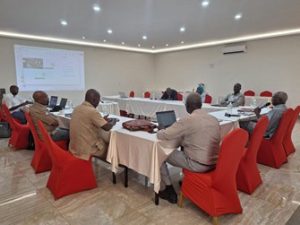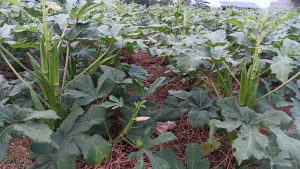TAAT restates commitment to strengthening African seed systems
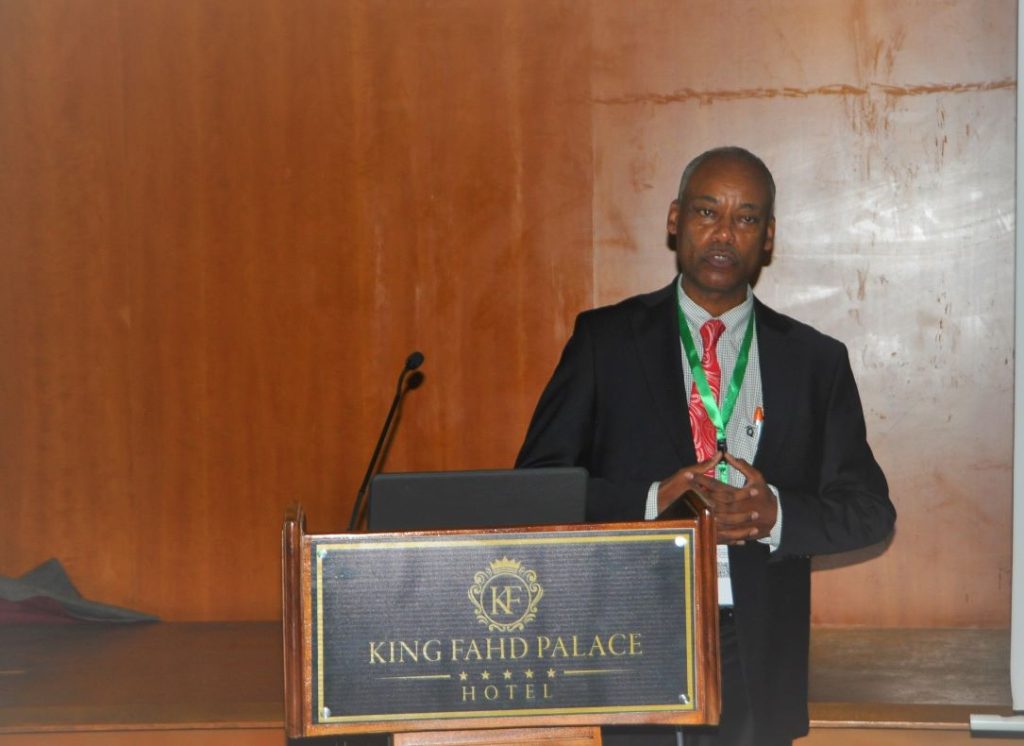
Buoyed by the need to establish and deepen engagements with seed industry players and stakeholders and build valuable connections and business opportunities for technology scale-up with private seed enterprises, Technologies for African Agriculture (TAAT) participated at the 2023 Congress of the African Seed Trade Association (AFSTA)
The 2023 AFSTA Congress which held in Dakar, Senegal from the 6th – 8th of March 2023 attracted key seed industry players and leaders including representatives of governments and the private sector.
Speaking during the plenary session, Dr Solomon Gizaw, Head of TAAT Clearinghouse, expressed TAAT’s focal commitment to strengthening seed systems across Africa as a critical element of boosting productivity to transform African agriculture.
According to Dr Gizaw, the TAAT seed system is a collaborative effort between TAAT Compacts and their seed partners/companies intended to develop and strengthen the national seed systems in countries by delivering high-quality seeds, breeds, and fingerlings to beneficiaries.
“Through this mechanism, the TAAT ecosystem has supported the dissemination of seeds to 19 million of 40 million smallholder farmers targeted. The programme has equally provided 11M farmers in 28 countries with climate-smart seeds, fertilisers, and technical support–helping African food production increase by more than 12M metric tonnes,” Dr Gizaw said.
Rallying for AEFPF
The TAAT Clearinghouse Head further craved the support of AFSTA to the $1.5 billion African Emergency Food Production Facility (AEFPF), which according to him, “is designed to boost the local production of cereals and oil grains as the most effective and efficient way to build the resilience of Africa’s food systems to respond to the circumstances surrounding the Russian/Ukraine war and to mitigate risks to supply in short to medium terms.”
With your support, the African Development Bank, through this facility, is delivering certified seeds of climate-adapted varieties, fertilisers, and extension to 20 million farmers; and supporting post-harvest management and market development,” Dr Gizaw said.
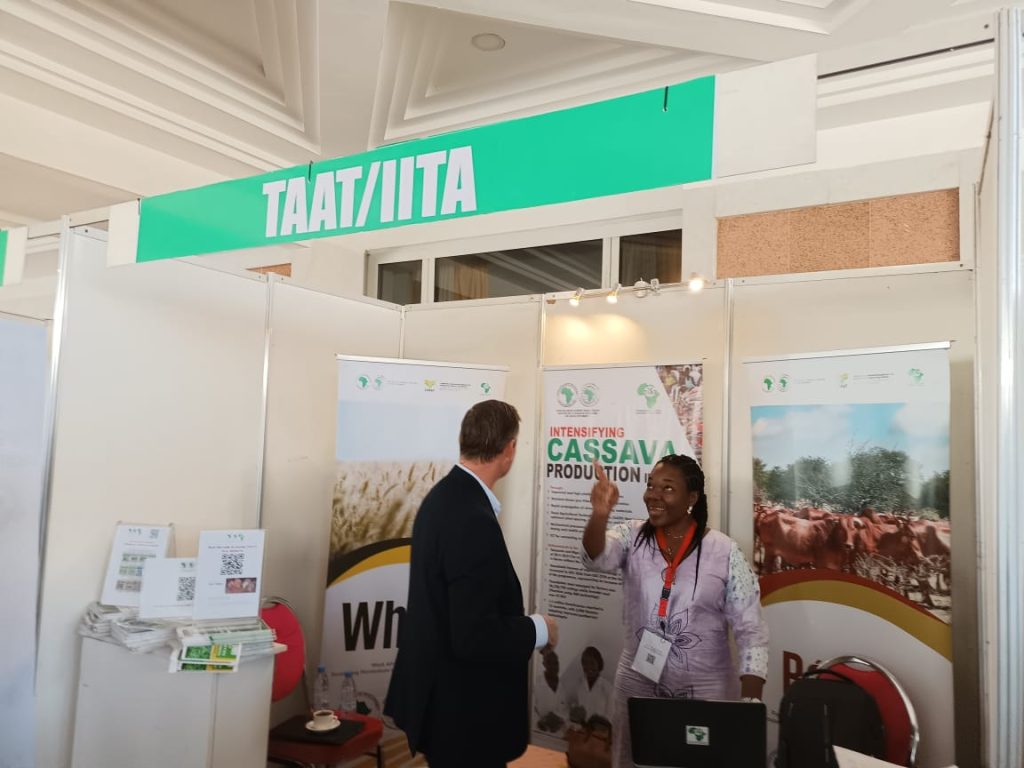
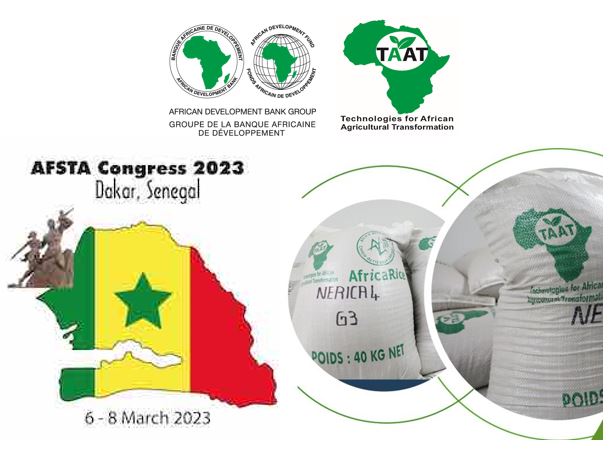
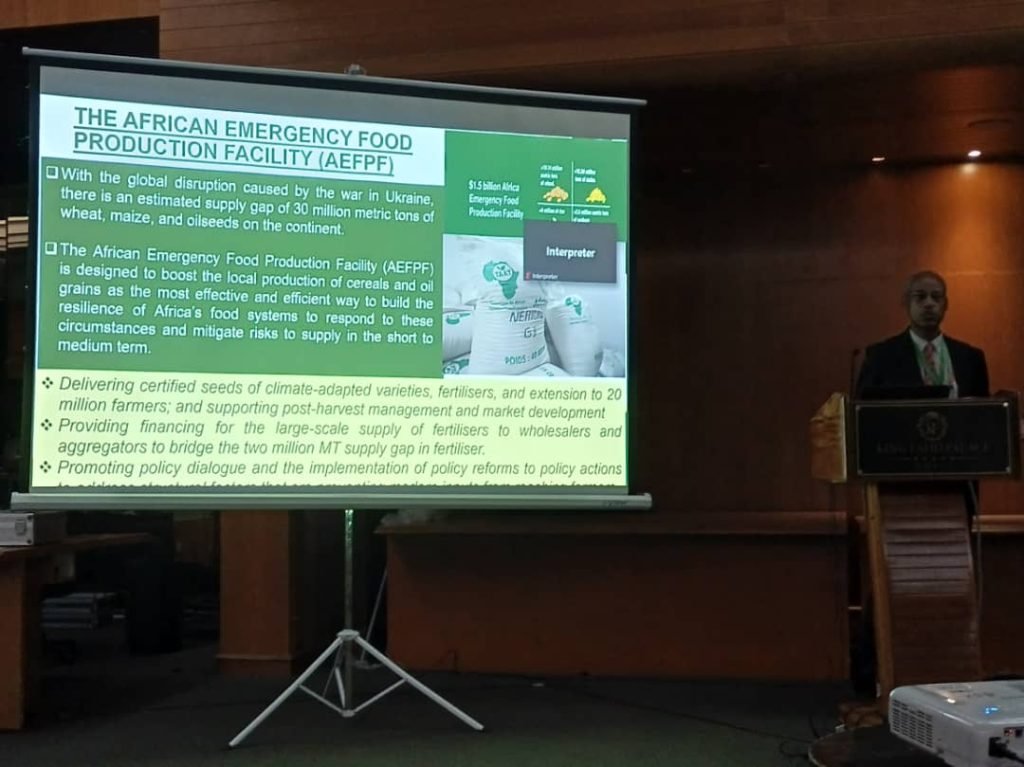

The AEFPF provides financing for the large-scale supply of fertilisers to wholesalers and aggregators to bridge the two million MT supply gap in fertiliser. It is already promoting policy dialogue and the implementation of policy reforms to policy actions to address structural factors that are preventing modern inputs from reaching farmers,” Dr Gizaw added.
The seed stakeholders
The congress of the Africa Seed Trade Association (AFSTA) is a platform that enables seed people from all over Africa and beyond to network and exchange ideas on what the current situations portend to the future of seed trade and production.
The annual AFSTA congresses provides great opportunities for the seed industry stakeholders to network and trade and also to provide information on the latest policy developments that have the potential to impact seed trade activities in Africa. This year’s congress discussed, among other issues, the state of implementation of the harmonised seed trade policies and regulations by member states and the Africa Free Trade Agreement and its potential impact on the Seed Industry.
Recent Stories
Related Stories
- AALI, CORAF rally stakeholders on TAAT’s pathway for robust African seed systems
- Uganda: TAAT showcases improved and resilient soybean varieties
- Ghana: TAAT and partners showcase improved maize varieties to farmers
- TAAT to highlight innovation pathways at African Food Systems Summit 2025
- How ACLBC is Catalysing the Adoption of New Climate-smart Seed Varieties


